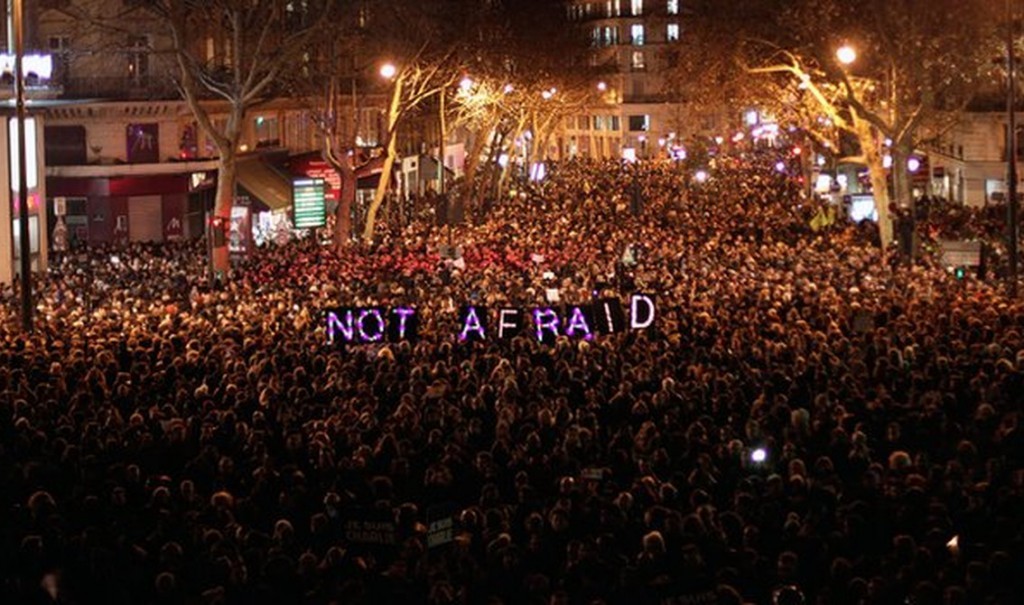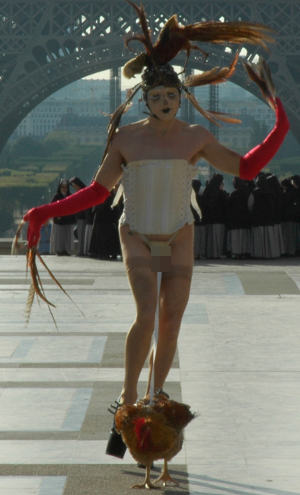
On the evening of November 13, 2015, ironically coinciding with Friday the 13th, a series of coordinated terrorist attacks occurred in the city of Paris, France. These unexpected attacks consisted of mass shootings, suicide bombings and hostage-taking, some of which occurred at the Bataclan theatre, where the American band Eagles of Death Metal was playing. The Islamic State of Iraq declared responsibility for the attacks in response to the French airstrikes on ISIL targets in Syria and Iraq. Unfortunately, this was not France’s initial encounter with coordinated terrorist attacks. Earlier this year, France had been on high alert for terrorism after the Charlie Hebdo shootings. The phrase “Je suis Charlie,” translated to “I am Charlie,” became a common slogan of support throughout the nation. About two million people, including more than forty world leaders, met in Paris for a rally of national unity. Despite this terrible tragedy, these leaders from across the world unified to support a fellow ally that was in desperate need of support.
In comparison to the response after the Charlie Hebdo shooting, France also announced its plan to fight back against ISIS. However, this attack would not involve weapons, an intimidating army, or orders carried out with threats for vengeance. Instead, this attack against ISIS would involve the fight for cultural preservation. The culture of France and that of the French people has been shaped by profound historical events. France, and in particular Paris, has played an important role in being a model for high culture since the 17th century. Cinema, fashion, and cuisine are all important factors that contributed to regional and socioeconomic successes of the French culture. Unfortunately, some of this culture was temporarily destroyed after the bombings in Paris, such as the Bataclan Theatre. After a three-day state of mourning, French culture minister Fleur Pellerin offered a six million fund that will help theatres, cinemas, and museums recoup their losses. In addition, many French museums will temporarily house endangered artifacts from Syria and Iraq. According to Pellerin, “France will dance again, sing again, draw new cartoons, and culture will remain proud, insolent free.” The leaders of Paris are vocalizing their opposition to these attacks by focusing on the regrowth of a nation instead of immediate retribution. Furthermore, President Hollande announced that over the course of the next two years, France will take in 30,000 refugees from Syria and Iraq. In addition, it will also being safeguarding Syria’s and Iraq’s at-risk cultural artifacts that have been threatened by the rise of terrorism.
Over the past years, ISIS has become notorious for destroying cultural symbols and objects that it considers idolatrous. Just recently, ISIS destroyed several ancient buildings in Palmyra that contained preservations of world heritage. Some of the monuments eradicated by these attacks were documented, but unfortunately not all were preserved through photographs or records. In response to the attacks from ISIS, Louvre director Jean-Luc Martinez unveiled a plan to build a memorial at the Tuileries Gardens in Paris in honor of fallen “guardians of heritage”, such as Khaled al-Assad. Martinez also recommended an established donation for the reconstruction of destroyed establishments, such as Palmyra.
Representatives of the Islamic State have claimed that the statues and monuments of humans are a forbidden form of idolatry. As a result, their solution is to destroy cultural heritage sites linked with centuries of historical significance. Although the scheme to fight ISIS with cultural preservation does not include a direct plan for retaliation, it does include an indirect strategy to strengthen the French morale through the rebuilding of a culture. Despite the temporary destruction of this culture, the walls which were knocked down can easily be rebuilt. By preserving cultures temporarily destroyed by ISIS, the French are attacking the personal convictions of ISIS members, which is arguably more valuable. As this terrorist group continues to destroy important heritage sites in Syria, Iraq, and now France, the most appropriate form of revenge is to show strength through unity and reconstruction.






